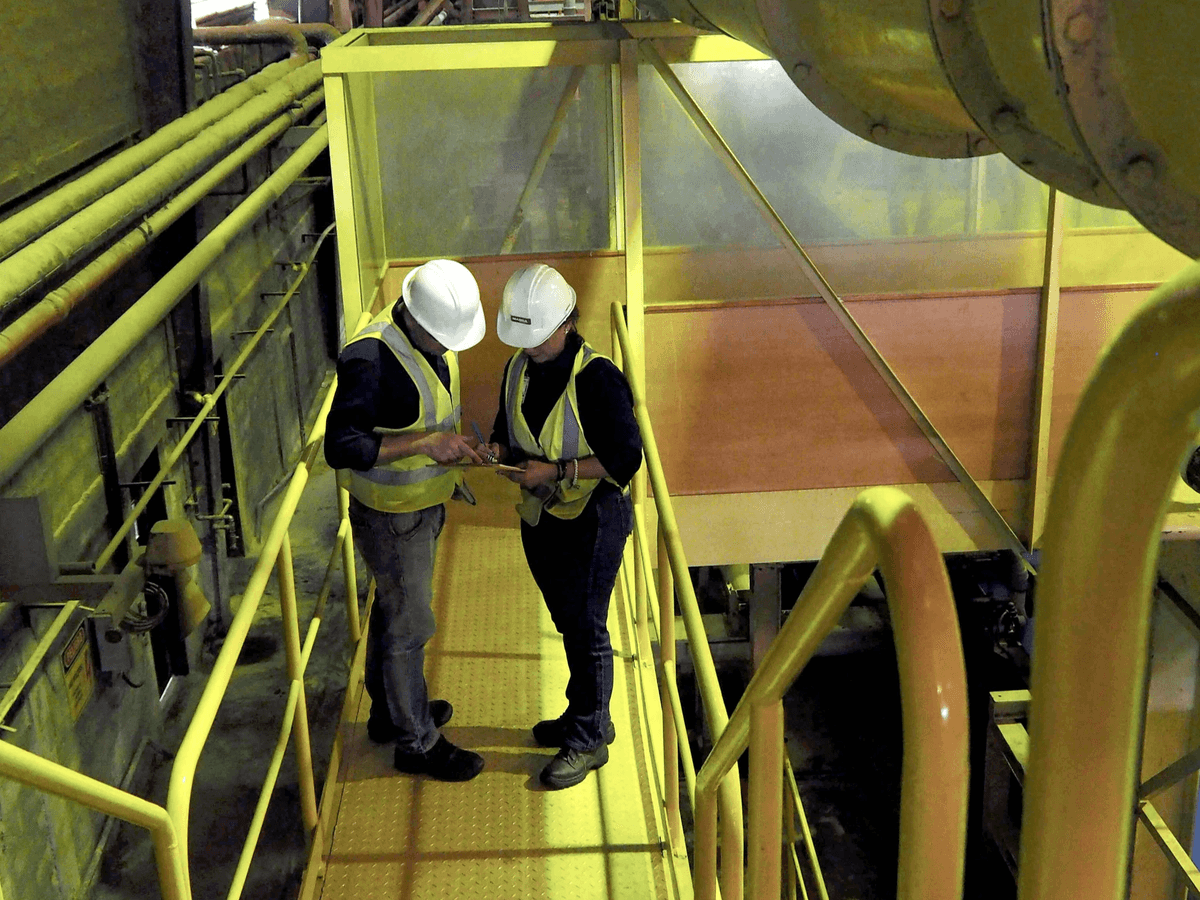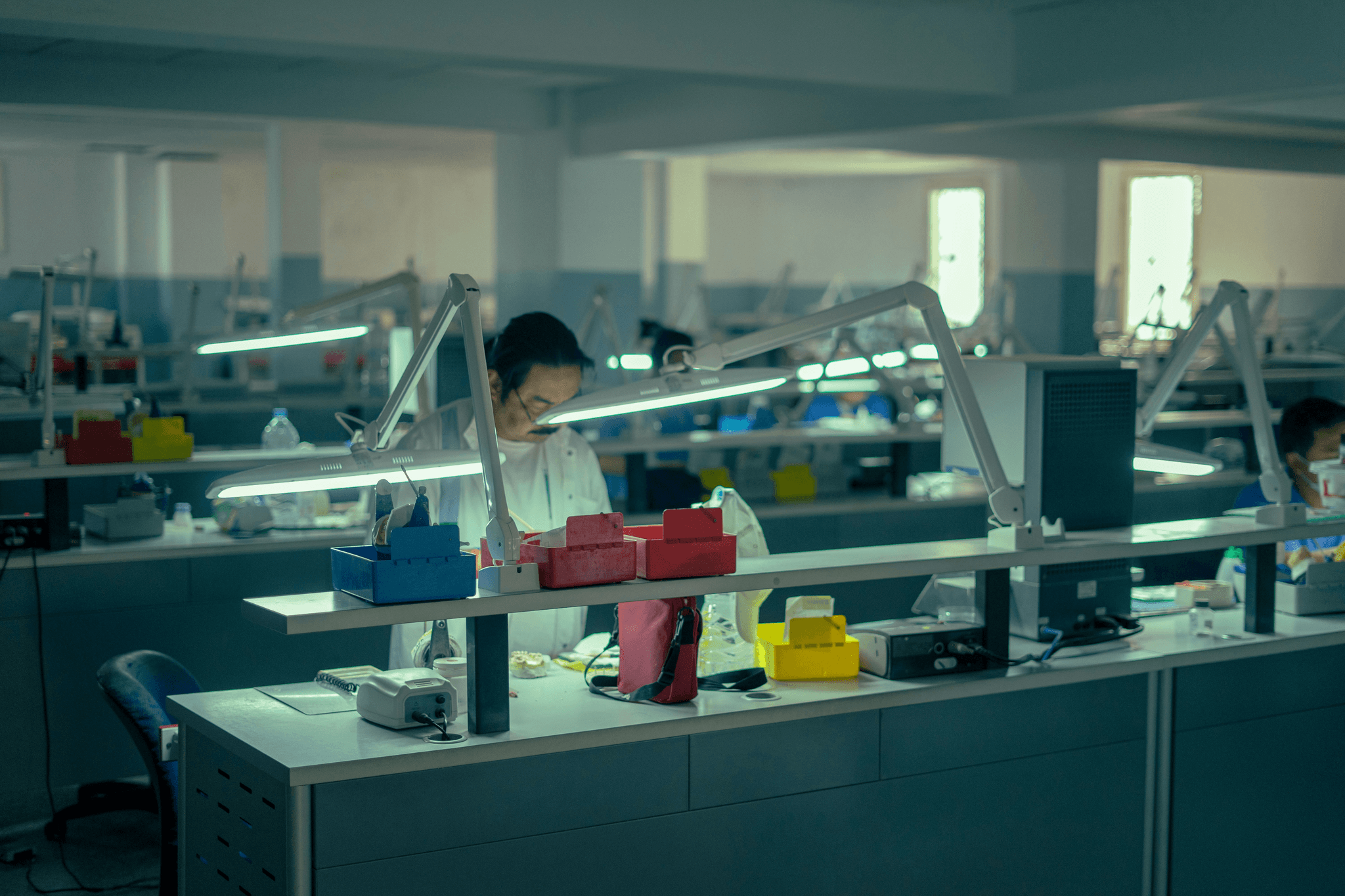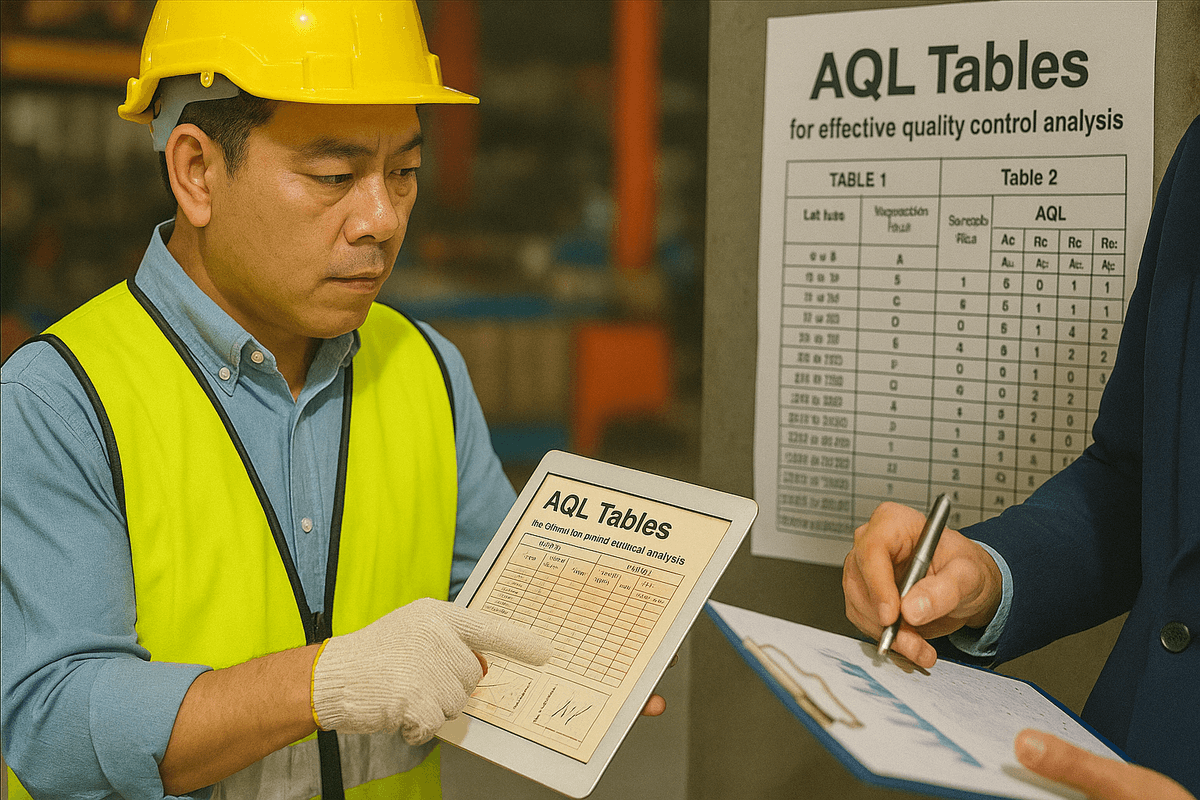Introduction

In today's global marketplace, ensuring the quality of products and services is paramount, and this is where a third-party inspection company comes into play. But what exactly is a third-party inspection company? It serves as an independent entity that evaluates products or services to guarantee they meet specified standards, providing peace of mind to manufacturers and consumers alike. As we delve deeper, we'll explore the critical role that these inspections play in maintaining quality assurance across industries.
Understanding Third Party Inspections
Third-party inspections are essential for verifying compliance with safety standards, regulations, and specifications. These inspections can encompass various processes and methodologies, including visual assessments and non-destructive testing—so what are the 4 types of inspection? Understanding these categories not only helps businesses select appropriate inspection methods but also ensures they can effectively mitigate risks associated with product failures or defects. Ultimately, third-party inspections offer an unbiased perspective that enhances product integrity.
The Role of Quality Assurance
Quality assurance is not just a buzzword; it’s a fundamental aspect of manufacturing that ensures consistency in product quality. By employing a third-party inspection company, organizations can bolster their quality assurance strategies through rigorous evaluations conducted by trained professionals. This proactive approach minimizes the chances of defects reaching consumers while also paving the way for obtaining valuable certifications like the third party inspection certificate.
The Importance of Credibility
Credibility in business relationships hinges on trust; thus, having credible third-party inspections can significantly enhance brand reputation. When companies engage reliable inspectors, they not only demonstrate commitment to quality but also comply with regulations—leading to why third-party inspection is required in many sectors today. In an era where transparency matters more than ever, establishing credibility through objective assessments fosters stronger connections between manufacturers and customers.
What is a Third-Party Inspection Company?

When it comes to ensuring quality and compliance in various industries, the role of a third-party inspection company cannot be overstated. These independent entities provide objective evaluations and assessments of products, services, or processes, helping businesses maintain high standards. But what exactly is a third-party inspection company? Let’s dive into the details.
Definition and Overview
A third-party inspection company is an independent organization that conducts inspections on behalf of clients to verify compliance with specific standards or regulations. Unlike first-party inspections, which are carried out by the manufacturer or service provider themselves, and second-party inspections conducted by clients or customers, third-party inspections offer an unbiased perspective. This impartiality is crucial in building trust between manufacturers and their customers across various sectors.
These companies specialize in evaluating products at different stages of production or service delivery to ensure they meet industry regulations and customer specifications. By providing detailed reports and certifications—such as a third party inspection certificate—they help businesses demonstrate their commitment to quality assurance.
Key Functions and Services
Third-party inspection companies offer a range of functions designed to enhance quality control processes. Among these key services are visual inspections, non-destructive testing (NDT), functional testing, and final inspections—collectively answering the question: what are the 4 types of inspection? Each type serves a unique purpose; for example, visual inspections focus on surface-level evaluations while NDT ensures structural integrity without damaging the product.
In addition to these inspection types, these companies can also provide consulting services aimed at improving manufacturing practices or compliance procedures. They may assist clients in understanding regulations relevant to their industry as well as offering training programs for staff involved in quality assurance processes.
Benefits of Third-Party Inspections
The advantages of engaging a third-party inspection company are numerous and significant for any business looking to maintain high-quality standards. Firstly, they help mitigate risks by identifying potential issues before they escalate into costly problems—a primary reason why third-party inspection is required in many industries today.
Moreover, obtaining a credible third party inspection certificate can enhance your brand's reputation by demonstrating adherence to international standards and regulations. This not only builds consumer confidence but also opens doors for global trade opportunities where credibility is paramount.
Finally, utilizing these services fosters transparency throughout the supply chain process; manufacturers can ensure their suppliers meet necessary guidelines while consumers gain peace of mind knowing that products have been independently verified for quality assurance.
What Are the 4 Types of Inspection?

When it comes to ensuring product quality and safety, understanding what are the 4 types of inspection is crucial. Each type plays a unique role in the overall inspection process, allowing third-party inspection companies to provide comprehensive assessments. These inspections not only help in maintaining standards but also enhance credibility across various industries.
Visual Inspection
Visual inspection is often the first line of defense in assessing product quality. This method involves a thorough examination of items by trained inspectors who look for visible defects or irregularities without any specialized tools. By utilizing a third-party inspection company for visual inspections, businesses can ensure that their products meet necessary specifications and standards before they reach consumers.
During a visual inspection, inspectors check for issues such as surface flaws, color discrepancies, and misalignments that could affect functionality or aesthetics. The simplicity of this method makes it an accessible option for many manufacturers seeking to understand what is a third-party inspection company’s role in quality assurance. Ultimately, visual inspections help identify problems early on, preventing costly mistakes down the line.
Non-Destructive Testing
Non-destructive testing (NDT) takes things up a notch by allowing inspectors to evaluate materials without causing damage. This technique uses various methods such as ultrasonic testing or X-rays to detect internal flaws that may not be visible on the surface. Engaging with a third-party inspection company specializing in NDT can provide manufacturers with peace of mind knowing their products are thoroughly evaluated without compromising integrity.
The significance of non-destructive testing lies in its ability to reveal weaknesses that could lead to failures later on—essentially catching issues before they escalate into major problems. For industries like aerospace and construction where safety is paramount, NDT becomes indispensable; it ensures compliance with regulations while protecting brand reputation. Therefore, understanding non-destructive testing is essential when considering why third-party inspection is required.
Functional Testing
Functional testing assesses whether products perform as intended under specified conditions—think of it as giving your product a test drive! This type of inspection evaluates how well an item operates within its designed parameters and checks if all components work harmoniously together. By employing a third-party inspection company for functional testing, businesses can validate their products’ performance before they hit the market.
The emphasis on functional testing highlights its critical role in ensuring customer satisfaction and minimizing returns due to faulty items—nobody wants an unhappy customer! Moreover, when manufacturers understand what are the 4 types of inspections available, they can make informed decisions about which tests best suit their needs and objectives for quality assurance. Ultimately, functional tests contribute significantly to building trust with consumers by ensuring reliable performance.
Final Inspection
Final inspections serve as the last checkpoint before products are shipped out or delivered to customers—a crucial step indeed! During this phase, all aspects from previous inspections are re-evaluated alongside packaging and labeling requirements to ensure compliance with industry standards and regulations. Utilizing a third-party inspection company at this stage helps confirm that everything meets expectations before reaching clients.
This final scrutiny not only safeguards against sending out defective goods but also reinforces brand integrity by showcasing commitment towards quality control processes—something consumers highly value today! Manufacturers should recognize how vital final inspections are within the broader context of what is the difference between second party and third party inspection when aiming for excellence in their operations. In conclusion, final inspections encapsulate all prior evaluations while solidifying trust between producers and customers alike.
What is the Difference Between Second Party and Third Party Inspection?

When navigating the world of inspections, understanding the difference between second party and third party inspection is crucial for businesses. While both types serve to ensure quality and compliance, they have distinct roles and implications in various industries. Knowing these differences can help you make informed decisions about which inspection method best suits your needs.
Defining Second Party Inspection
Second party inspection involves an evaluation conducted by a buyer or their representative on the supplier's premises. This type of inspection typically focuses on verifying that products meet specific standards before they are shipped to the buyer. It’s a way for buyers to maintain control over quality by having their own team or agents assess compliance directly.
Key Differences Explained
The primary difference between second party and third party inspections lies in objectivity and independence. A third party inspection company operates independently from both the buyer and seller, providing an unbiased assessment of products or services. In contrast, second party inspections can be influenced by the buyer’s interests, potentially leading to conflicts of interest that might compromise objectivity.
Another key distinction is in scope; while second-party inspections may focus on specific contractual obligations, third-party inspections often involve comprehensive evaluations across multiple criteria. Furthermore, third-party inspection certificates carry more weight in global trade as they demonstrate adherence to international standards without any bias from either side.
When to Choose Third Party Inspections
Choosing a third-party inspection is particularly beneficial when dealing with complex supply chains or international transactions where trust is paramount. If you're looking for transparency and credibility in your assessments—especially when entering new markets—a third-party inspection company can provide that assurance through impartial evaluations. Additionally, if regulatory compliance is a concern, opting for a third-party inspector ensures that you meet industry standards without potential conflicts arising from second-party evaluations.
In summary, while both types of inspections play essential roles in quality assurance, understanding their differences helps businesses navigate risks more effectively and maintain high standards across their operations.
Third-Party Inspection Meaning in Global Trade

In the realm of global trade, third-party inspections serve as a vital link between manufacturers and consumers, ensuring that products meet quality standards before reaching their final destination. A third party inspection company acts as an impartial entity that verifies compliance with industry regulations and quality benchmarks. This role is crucial in fostering trust across borders, especially when dealing with international suppliers or buyers.
Building Trust Across Borders
Building trust in global trade can be a daunting task, especially when dealing with unfamiliar suppliers or markets. Here’s where the significance of a third-party inspection company comes into play; they provide an unbiased assessment that assures all parties involved about product quality and compliance. By obtaining a third party inspection certificate, businesses can demonstrate their commitment to quality assurance, thereby enhancing credibility and fostering long-term relationships.
Importance for Manufacturers
For manufacturers, the implications of third-party inspections are profound. Not only do these inspections help ensure that products meet specific standards—whether through visual inspection or non-destructive testing—but they also mitigate risks associated with defective goods entering the market. By understanding what is a third-party inspection company and utilizing their services effectively, manufacturers can avoid costly recalls and protect their brand reputation.
Enhancing Supply Chain Transparency
Transparency in supply chains has become increasingly important for businesses operating on a global scale. Third-party inspections enhance this transparency by providing clear insights into product quality at various stages of production through different types of inspections like functional testing and final inspection. When companies understand what is the difference between second party and third party inspection, they can make informed decisions about risk management strategies while ensuring compliance with regulations across different markets.
Why Third-Party Inspection Is Required

In an increasingly complex global marketplace, the need for a third-party inspection company has never been more crucial. These inspections serve as a safeguard, ensuring that products meet established quality standards before they reach consumers. By integrating third-party inspections into your operations, you can significantly mitigate risks associated with product failures and compliance issues.
Risk Mitigation Strategies
Utilizing a third-party inspection company is one of the most effective risk mitigation strategies available to businesses today. These experts provide unbiased evaluations of products and processes, helping to identify potential issues before they escalate into costly problems. By conducting thorough assessments, such as visual inspections or non-destructive testing, companies can avoid significant financial losses and maintain operational continuity.
Moreover, understanding what is a third-party inspection company allows businesses to leverage their expertise in identifying areas of vulnerability within their supply chains. When manufacturers know what are the 4 types of inspection available—like functional testing and final inspection—they can better prepare for potential challenges and ensure that quality control measures are in place throughout production cycles. Ultimately, risk mitigation through third-party inspections not only protects assets but also fosters greater confidence among stakeholders.
Compliance with Regulations
Compliance with industry regulations is another compelling reason why third-party inspection is required in today’s business landscape. Many sectors have stringent guidelines that dictate how products should be manufactured and tested prior to market entry. Engaging a reputable third-party inspection company helps organizations ensure adherence to these regulations while avoiding hefty fines or legal repercussions.
Understanding what is the difference between second party and third party inspection can clarify the importance of independent verification in compliance matters. While second-party inspections may involve internal audits or self-assessments, relying on an impartial entity provides an extra layer of credibility that regulatory bodies often demand. Additionally, acquiring a third party inspection certificate demonstrates compliance and commitment to quality standards—an essential asset for businesses aiming to thrive in competitive markets.
Protecting Your Brand Reputation
In today's digital world, a brand's reputation can be made or broken by consumer perception—making it vital for companies to prioritize quality assurance through methods like third-party inspections. When customers trust that products have undergone rigorous evaluation by an independent source, they are more likely to choose those brands over competitors who may not prioritize quality checks as thoroughly. This trust translates into customer loyalty and repeat business.
Moreover, understanding the significance of third-party inspection meaning extends beyond just compliance; it involves creating an image of reliability and excellence in your industry sector. Businesses that consistently deliver high-quality products are better positioned to weather market fluctuations while maintaining positive relationships with customers and partners alike. Therefore, investing in a strong partnership with a trusted third party inspection company becomes not just beneficial but essential for long-term success.
Conclusion

In a world where quality assurance is paramount, understanding the role of a third-party inspection company becomes essential. These entities not only uphold standards but also provide an unbiased perspective on product integrity and compliance. By prioritizing quality through inspections, businesses can mitigate risks and enhance their reputation in the marketplace.
Ensuring Quality Through Inspections
Quality assurance is the backbone of any successful business, and third-party inspections play a crucial role in this process. By employing various methods such as visual inspection, non-destructive testing, functional testing, and final inspection, companies can ensure that their products meet the required standards before reaching customers. Ultimately, these efforts lead to fewer defects and enhanced customer satisfaction—a win-win situation for everyone involved.
Choosing the Right Inspection Partner
Selecting a reliable third-party inspection company is vital for maintaining high-quality standards in your operations. Look for firms with experience in your industry who can provide insights into what is the difference between second party and third party inspection? Additionally, consider their certifications and reputation; a trustworthy partner will offer you peace of mind as they navigate complex regulatory landscapes. The right choice will not only bolster your quality assurance efforts but also help you achieve compliance with necessary regulations.
The Value of a Third Party Inspection Company
The value of engaging with a third-party inspection company cannot be overstated—these organizations serve as impartial arbiters in global trade dynamics. They facilitate trust between manufacturers and consumers by ensuring that products meet specified criteria while enhancing supply chain transparency through rigorous assessments. Moreover, obtaining a third party inspection certificate can significantly boost your brand's credibility by demonstrating commitment to quality assurance.
